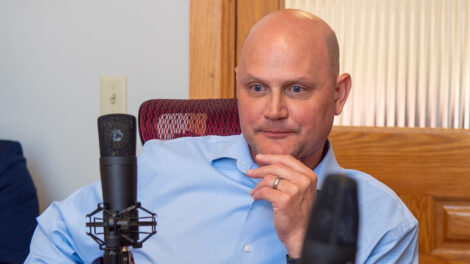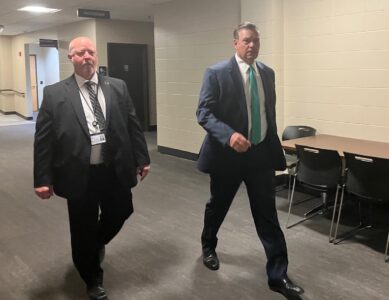New battle expected after Gov. Sebelius vetoes coal-burning power plant bill
It’s a showdown over coal-burning power plants again.
On Monday, as expected, Gov. Kathleen Sebelius vetoed legislation that would allow construction of the two 700-megawatt plants in southwest Kansas.
She vetoed three similar bills last year. In her newest veto message Monday, Sebelius said of the legislation, “What was a bad idea last year, is an even worse idea today.”
President Barack Obama is moving toward regulating carbon dioxide emissions, and Kansas doesn’t need the plants for its own energy needs, she said.
And, she said, the Legislature’s attempt to marry renewable initiatives to the bill was a failure because many of the so-called “green” provisions ended up watered down.
“Once again, as the rest of the country moves toward a renewable energy future, the Legislature is intent on darkening Kansas’ energy future with new coal plants that will provide energy we don’t yet need,” she said.
The veto sets up a showdown with lawmakers when they return for the wrap-up session on April 29. A two-thirds majority is required to overturn a veto.
While the Senate has voted to override in the past, the House has always fell a few votes short. But House Speaker Mike O’Neal, R-Hutchinson, has said he believes when the time arrives, the House will override.
Meanwhile, as the battle brews up again, the Colorado-based electricity supplier that has been a major player in pushing for approval has dropped the project from its “near-term” planning and increased its focus on renewable energy.
“The delays in permitting the Kansas project make it unlikely to be available in the near-term,” said Ken Anderson, executive vice president and general manager of Tri-State Generation and Transmission Association.
“If a project is eventually permitted, it would remain an option for our long-term resource needs,” Anderson said.
In 2005, Tri-State announced a plan to buy power from the plants that Hays-based Sunflower Electric Power Corp. proposed building near Holcomb.
But in 2007, Kansas Department of Health and Environment Secretary Rod Bremby blocked Sunflower’s proposal over concerns about the project’s potential of 11 million tons per year of carbon dioxide emissions and global warming.
That decision has produced the ongoing political standoff.
Last week, Tri-State’s board said it would review its plans for coal-based power and work more on renewable energy, natural gas and energy efficiency to meet the needs of 1.4 million customers in Colorado, Nebraska, New Mexico and Wyoming.
But Sunflower Electric officials said Tri-State remains committed to the Kansas project.
“They’re doing what everyone else is doing and that is looking at their options,” said Cindy Hertel, a spokeswoman for Sunflower Electric.
Stephanie Cole, a spokeswoman for the Kansas chapter of the Sierra Club, said Tri-State should listen to its own statements about potential regulations on carbon dioxide.
“The risks that Tri-State has acknowledged equate to potentially high rates for ratepayers,” Cole said. “As Tri-State re-evaluates, we encourage them to seriously consider the risks the Holcomb expansion poses to ratepayers and the environment.
As part of its near-term planning, Tri-State said it will expand its resources by:
• Contracting for 220-megawatts of natural gas-based capacity in eastern Colorado.
• Developing a 30-megawatt solar plant in New Mexico.
• Encourage community-based renewable energy projects.
• Enhance energy efficiency including incentives for customers to buy ENERGY Star-rated appliances.
• Commissioning a study on further energy efficiency savings.







